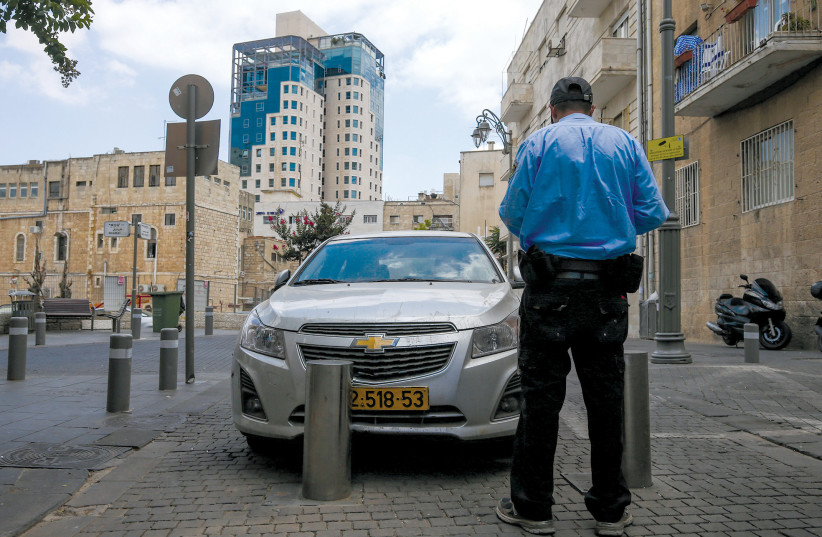In these modern times, we have kosher-for-Shabbat electric scooters, wheelchairs and Shabbat elevators, which allow those with physical disabilities to attend synagogue on Shabbat and chagim (High Holy Days), as well as visit friends and family, while feeling like independent members of the community.
However, all this is worthless if the path is not clear.
In many cities across Israel, all day long on Shabbat and chagim, cars are parked, blocking sidewalk access to those using wheelchairs, walkers or even baby carriages. This also occurs every weekday evening as commuters return home.
It seems to be part of the car culture in Israel for drivers not to think or care about what impact their actions might have on someone else. Unfortunately, this is a continuation of my previous discussion on “How to fix Israeli drivers” (The Jerusalem Post, September 4, 2021).

A good part of the fault lies with the individual city governments and their zoning commissions. Each city is at fault for not enforcing existing parking regulations. The local zoning commissions are at fault for not creating laws for the proper ratio of apartments to parking spots to be required by residential builders. Commercial builders also need to provide the proper number of parking spots, space to maneuver in the parking lot and out-of-the-way loading docks for stores in malls, which also must be mandated in zoning regulations.
So, how do we motivate the cities to act on behalf of creating a better quality of life for all its citizens? Perhaps, the city of Portland, Oregon, on the west coast of the United States has the answer.
Portland's solution for Israel: Sue the cities
A lawsuit was filed by people with disabilities who say they cannot navigate their city streets because of tents filled with the homeless who block the sidewalks. According to Claire Rush of the Associated Press in a September 8 article appearing in HuffPost, “The class action suit seeks to require the city to clear all sidewalks of tent encampments and debris, and to ‘construct, purchase, or otherwise provide for emergency shelters in which to house the unsheltered persons’ who may be affected.” Just web search the phrase “disabilities org sues Portland” to see articles, pictures and videos.
Instead of tents blocking pedestrian access, here in Israel, we have illegally parked vehicles blocking normal sidewalk access.
This next Shabbat or chag, regardless of your religiosity, take a short walk around your neighborhood. Try to imagine yourself in a wheelchair or pushing a baby carriage with a few small children tagging along. Are any of the curb cut-outs (ramps) or entire sidewalks blocked by a vehicle? Then you will realize that it might mean going around the vehicles and perhaps into the street with traffic or having to turn around to go another way. How does that make you feel?
Why not use the same tactic as Portland, Oregon? There are a number of Israeli organizations focused on the handicapped. Since our city governments are not being sensitive to the needs of the physically handicapped and young families with baby carriages, as well as ordinary citizens, why not sue the cities on behalf of those with disabilities to ticket and remove those vehicles blocking sidewalks and walkways? It might be worth a try.
The writer, who made aliyah in 2015, is a former NYC advertising agency and marketing executive. Though currently semi-retired, he continues as an instructor at Rutgers University – School of Communication and Information, and as a consultant. Check out his blog: https://thetruthfulproject.blogspot.com, and follow him on Twitter: @DavidsLevine
